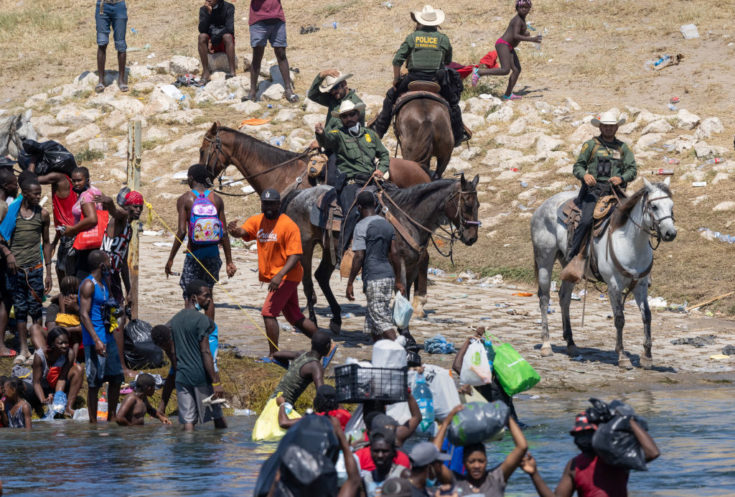Haitians are arriving by the tens of thousands at the U.S. border – some with food, blankets, mattresses, and more to seek asylum.
There’s been a rise in Haitian migration, which began right after President Biden took office.
The number of Haitians crossing the border that separates Colombia and Panama is a treacherous jungle known as the Darien Gap. According to the New York Times, border crossings in this area have surged in recent years from 420 in 2018 to more than 42,300 in August.
“We are dealing with this really new type of migration which is these Haitians coming from mainly Brazil and Chile,” Roberto Velasco, the chief officer for North America at Mexico’s foreign ministry, told The New York Times. “They are mainly looking for jobs as they come from third countries, so repatriation is difficult.”
In May, the Biden Administration extended protected status for the more than 150,000 Haitians already living in the U.S. Many Haitians took it as a sign that the U.S. would be more welcoming to migrants and reverse former President Donald Trump’s strictest immigration policies.
At the same time, the deteriorating political and economic situation in Haiti has forced tens of thousands of Haitians to leave their home.
Since Biden took office, Haiti President Jovenel Moïse was assassinated, leaving many parts of the country’s capital under gang control. On top of that, a magnitude 7.2 earthquake this summer has only added to the pressure of getting people to leave.
Following the assassination of Haiti’s president, hundreds of Haitians reportedly flocked to the U.S. Embassy in Port-au-Prince after false information spread on social media that the Biden administration would be giving out humanitarian visas to Haitians in need.
“False information, misinformation, and misunderstanding might have created a false sense of hope,’ Guerline M. Jozef, the executive director for the Haitian Bridge Alliance, told the New York Times.
Earlier this week, the U.S. resumed deportation flights to Haiti under Title 42 – an emergency public health order that has empowered the government to turn down immigrants during the ongoing health crisis.
The U.S. Immigration and Customs Enforcement repatriated 90 Haitians, as of Wednesday, which has been criticized by advocates who say the U.S. should give Haitians legal protection and the opportunity to apply for asylum.
“It is cruel and wrong to return anyone to Haiti now,” said Steve Forester, immigration policy coordinator at the Institute for Justice and Democracy in Haiti.
